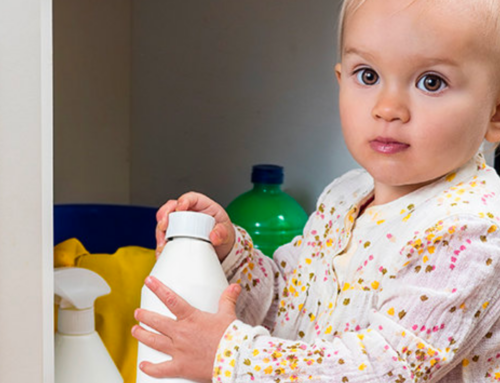April is National Child Abuse Prevention Month!
As caregivers and advocates of the children in our community, Florence Crittenton Programs would like to use this opportunity to bring awareness to the prevention of child maltreatment and shine a light on the importance of communities working together to help families thrive. Every day in America, 5 children die due to child abuse or neglect. Of the 4.4 million child abuse cases nationwide, it’s estimated that in 92% of those cases the abuser is the child’s parents.
Our goal is to ensure that the parents and families that we work with have the knowledge, skills, and resources that they need to navigate parenting with a focus on promoting their children’s overall well-being. Because we know that by providing valuable parenting and child safety education to caregivers that we serve, we help prepare them to safely manage stressful situations they encounter in parenthood. We want to bring awareness to the community about the importance of educating caregivers about different parenting models, encouraging a positive bond between child and caregiver, and the practice of safe and effective discipline with their children. We hope that by increasing awareness about child maltreatment and encouraging our community to implement effective strategies that support families and emphasize positive parenting practices, we can help prevent child abuse and neglect.
One strategy we would like to share with the community that we highly recommend is to take a breather before disciplining your child. This helps parents go into the interaction with a level head instead of being worked up and potentially overreacting out of anger or frustration which often results in an abusive reaction rather than productive behavior changes. A helpful tool that parents can use to remind both themselves and their children to take a time out when needed is Time Out Teddy. Time Out Teddy has a very important job.
Whenever a child’s behavior is escalating or becoming out of control for the situation at hand, parents may become upset or frustrated. Parenting is difficult, especially when children are just beginning to learn how to express themselves. This is a great time to give the child Time Out Teddy. The child can give Teddy a hug and take a breather from their feelings while the parent takes a moment to calm themselves. Time Out Teddy is a great visual reminder and tactile tool to help parents and children calm down together so parents can discipline appropriately without their frustration causing them to potentially lose control.
While this is just one of many effective strategies caregivers can use, it is important that parents have support while they learn what works best for them and their children. There are many community resources available to caregivers, and it’s important to provide education to all of the adults participating in the care of the children. Learning effective strategies to navigate parenthood helps empower caregivers in their parenting journey, helps them grow in the bond with their child, and effectively reduces the risk that their child will experience abuse or neglect. If you witness maltreatment of a child, do your part to protect the child by reporting the abuse or neglect to the appropriate agency. Child safety is a community responsibility. We can work together to keep our community safe. For more information on how to prevent abuse or neglect, local agencies and resources, or how to complete a report if child abuse prevention methods should fail, check out the resources below!
Nurturing Parenting – SC First Steps
Triple P (Positive Parenting Program) – Children’s Trust of South Carolina (scchildren.org)
Kingdom Parenting, In-Home Services, DSS, Family Court, Charleston
Free Parenting Classes – Coastline Women’s Center | South Carolina (coastlinewomenscenter.org)
Parenting Resource Center – American SPCC
Information for Parents & Caregivers – Dee Norton Child Advocacy Center (deenortoncenter.org)
If you witness maltreatment of a child, do your part to protect the child by reporting the abuse or neglect to the appropriate agency. From this link Childhelp National Child Abuse Hotline | (childhelphotline.org) you can find out how to make the report in your state.




